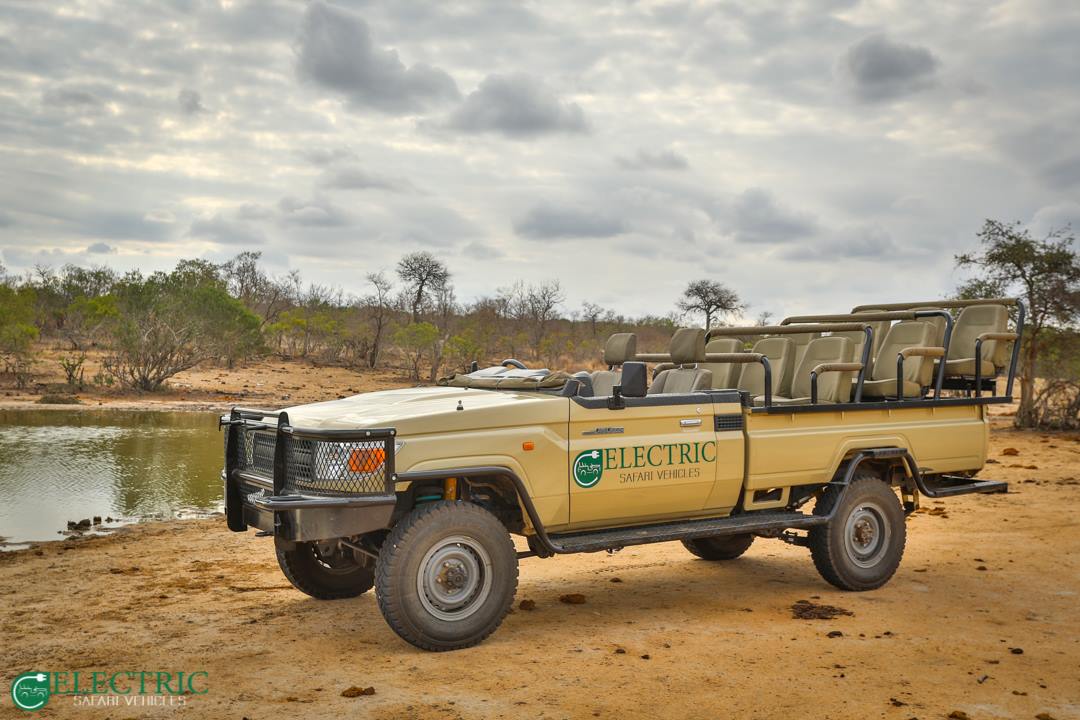It’s safe to say that Electric Safari Vehicles have the ability to change the game in the world of safari experiences. Not only are these state-of-the-art conversions much more environmentally friendly than normally aspirated vehicles, like the typical Land Rover Defenders or 4.2-litre diesel Toyota Land Cruisers, but they virtually are silent while running. This vehicle is revolutionary for game drives, and we’ll tell you why.
It handles rocks and river sand just the same, if not better, than fuel-powered engines
Field guides who expertly navigate the bushy terrain with their guests on the back of their six or nine-seater 4x4s have reported on how seamlessly the converted vehicles perform over the same rocky obstacles, through the thick riverbed sand, and across water crossings. The electric safari vehicle has the same capabilities as a Diesel engine and does not hinder access in typical safari landscapes. Precision control, torque, and 4×4 capabilities are impressive to say the least, so that’s point number one!
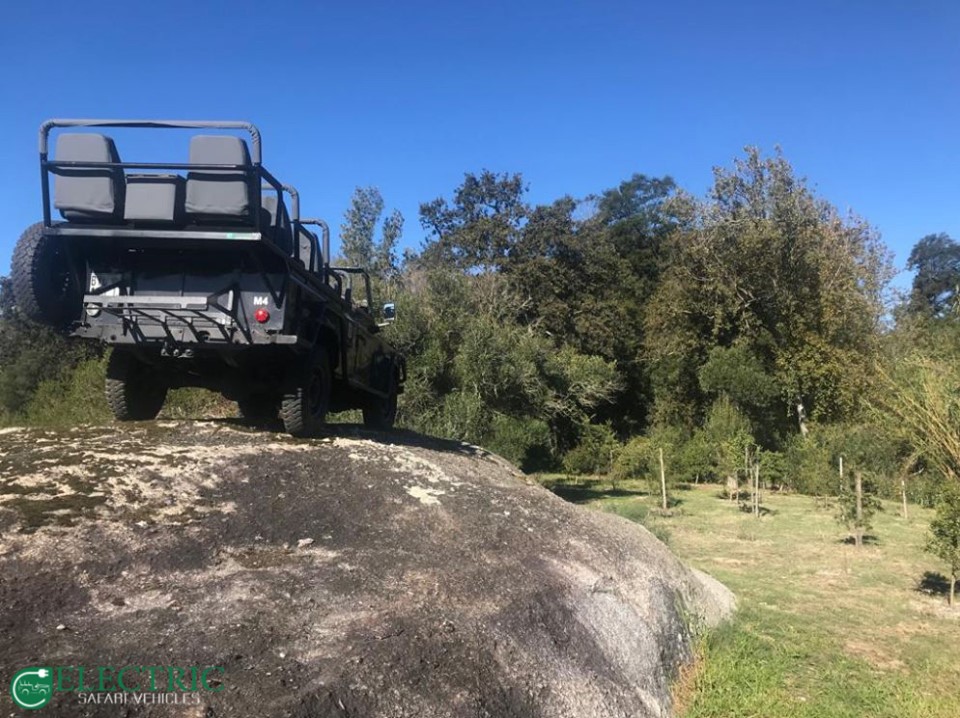
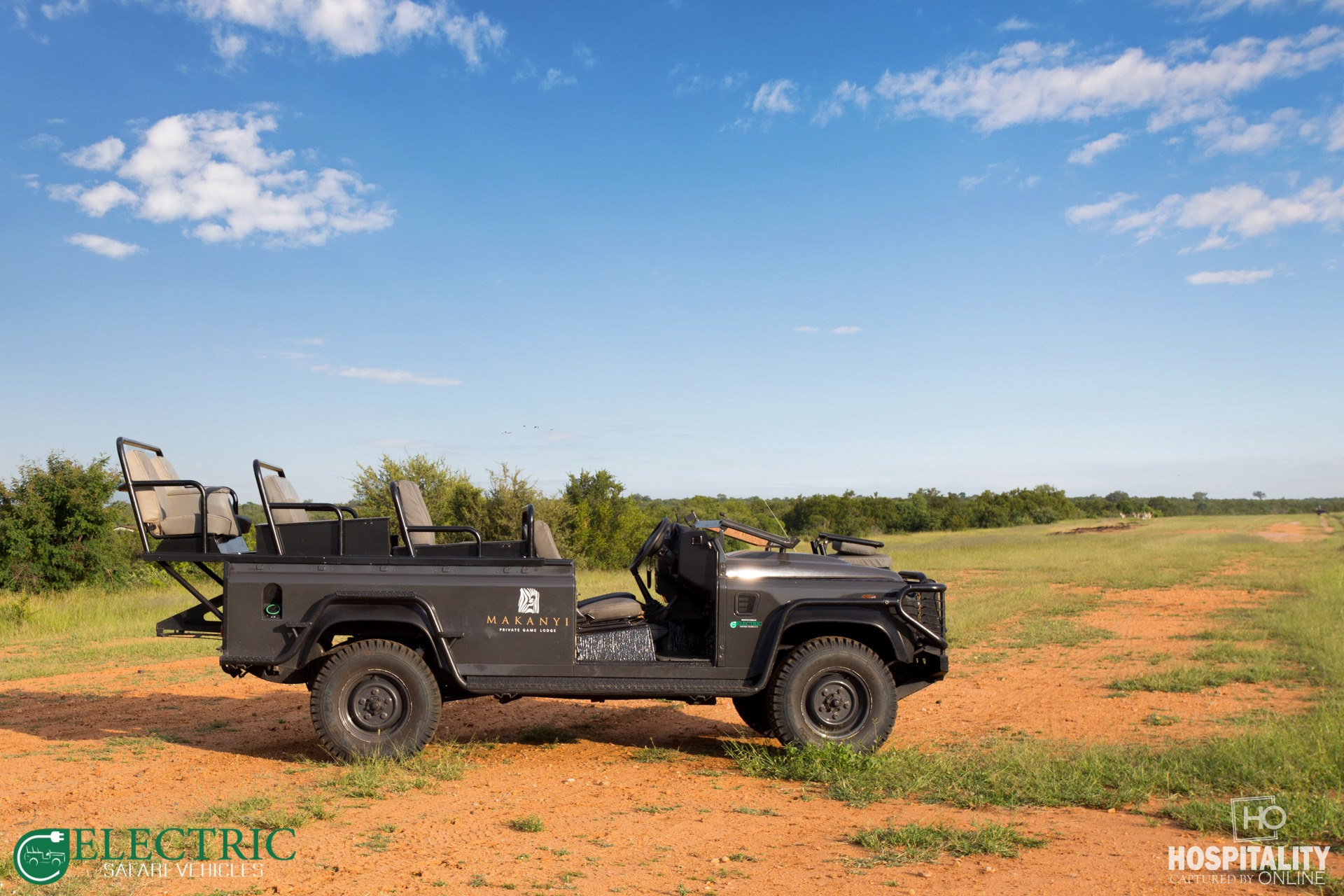
It’s completely silent when running
The electric conversions make an ordinary engine completely soundless. There is no loud turn-over of the engine as the key turns in the ignition and no roar of the engine coming to life before settling at a steady, rather loud, rumble. Cruising through the wilderness, listening for the sounds of animals and birds has never been easier. Many seasoned safari guests and field guides can’t believe the difference in what they can hear without the usual “chugga-chugga” of the Land Cruiser. Guides express being able to hear alarm calls in the bush, birds calling, and grass rustling all while driving. No more switching off of the engine to listen out for that telltale kudu bark! Plus, guests on the back of the vehicle can communicate easily with their guide in the driver’s seat without the sound of the engine.
It emits no fossil fuels and charges on solar power
Perhaps the most important aspect of the new electric safari vehicle is its eco-friendliness. By converting ordinary fuel-powered engines to electrically charged engines eliminates those harmful emissions from the atmosphere in environmentally sensitive areas. One of the most powerful ways in which we can change our impact on the environment is to reduce fossil fuels, and so for every engine converted, the greater the safari industry becomes for the planet. What’s more? It charges on solar power, taking it even further off the grid and utilising the sun’s abundant energy. It perfectly matches eco-friendly lodges that have already switched over to solar, completing the package and sealing the deal.
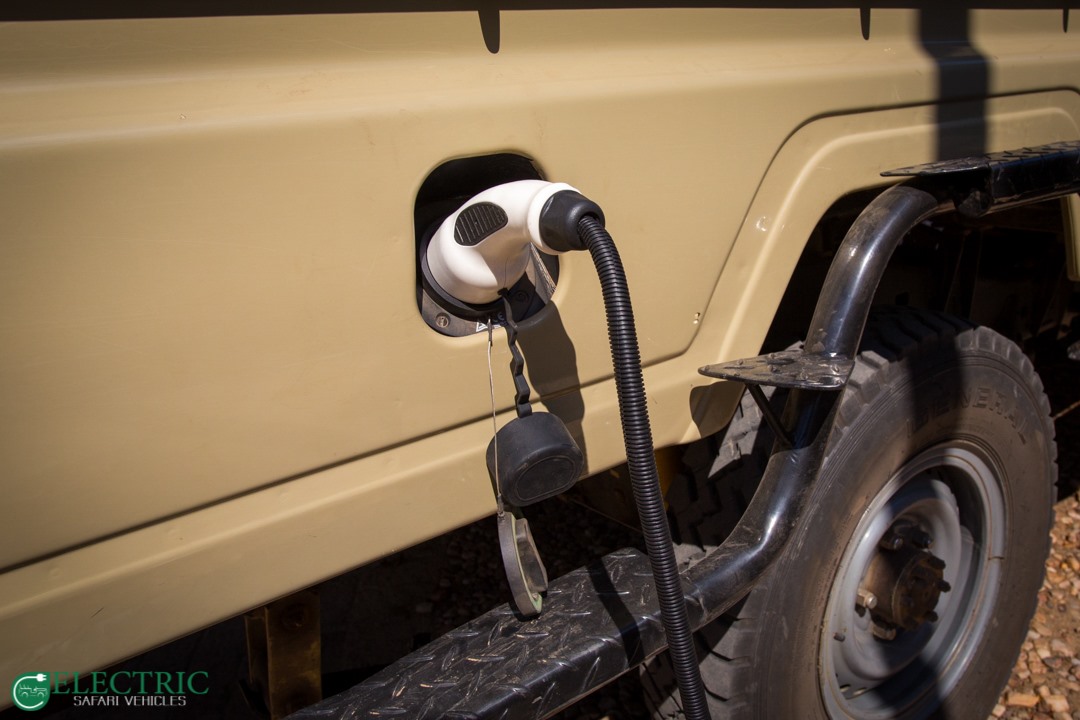
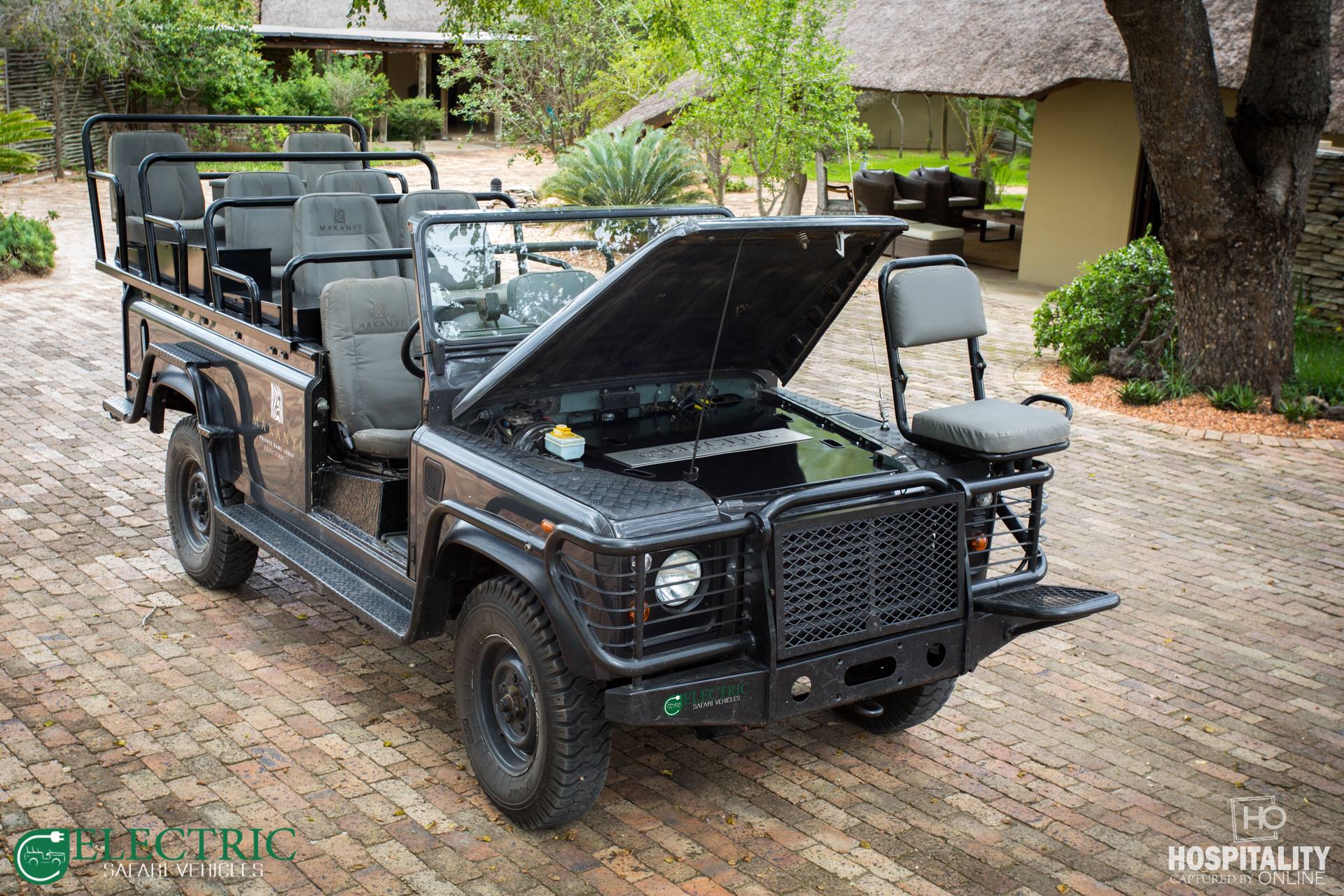
It’s perfect for photography and videography
The electric vehicles are so smooth and still and have no running-engine vibration, so forget shaky video clips and struggling to maintain focus through the lens. Video is such a powerful tool for conveying experiences and whether you’re using a mobile phone and sharing clips with your loved ones, or working with the latest cinematographic equipment and filming for National Geographic, your shots will be winners. No grumbling engine in the audio either!
It doesn’t disturb wildlife sightings
Pulling into wildlife sightings, repositioning in the sighting, or leaving the sighting at the end are soundless with the electric safari vehicle. The difference is that there is less chance of startling an animal when the vehicle is switched on, and it is ultimately more pleasant without the unnatural sound of an engine revving up in an all-natural environment. No more diesel fumes lingering in the air and no more noisy engines forming a part of your sightings soundtrack. Reason number five for why electric safari vehicles are a revolution!
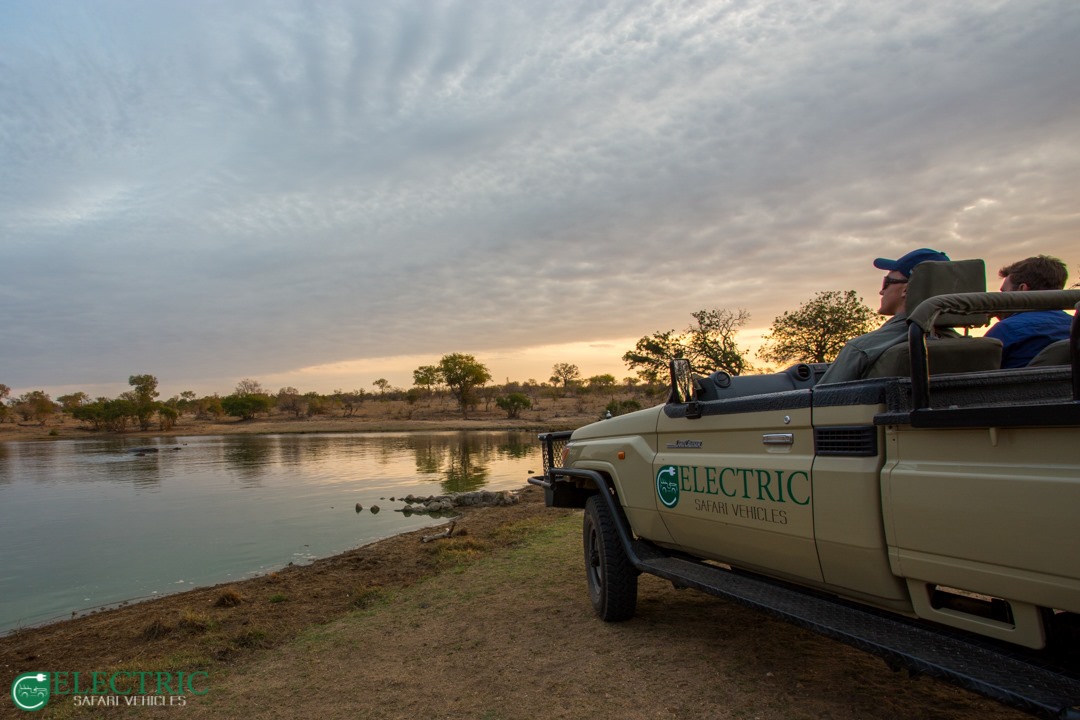
Now, this new age of safari travel comes at a price and it certainly can’t overtake the industry overnight. We’re keeping an eye open and identifying the lodges that can offer this type of exclusive, eco-friendly, elite safari experience to our guests. These two excellent establishments we work with in three key safari areas in Africa are part of the gang that have made the change, and we can’t wait to see others follow suit.
Makanyi Safari Lodge, Timbavati Private Nature Reserve.
Makanyi’s Head Ranger commented: “The silence is tremendous, and has totally transformed the safari experience. We can communicate more easily with our guests and the tracker without shouting over the sound of the engine, and we can better follow more sensitive or elusive game – leopards, bull elephants in musth, or mothers and babies for whom the sound of the engine can spark a negative reaction. All this whilst knowing we are protecting the environment we care so passionately about.”

Campi ya Kanzi, Amboseli National Park, Kenya
Luca Belpietro, Founder of Campi Ya Kanzi, said: “We assign a car and its driver to guests for the duration of their stay. We will give the electric car to guests who book a suite, subject to availability.” He said the reason for going electric was to have the lowest impact on the environment. “We are already carbon neutral,” he said. “We are 100% solar, with all electricity produced by photovoltaic panels and thermal solar for hot water.”
